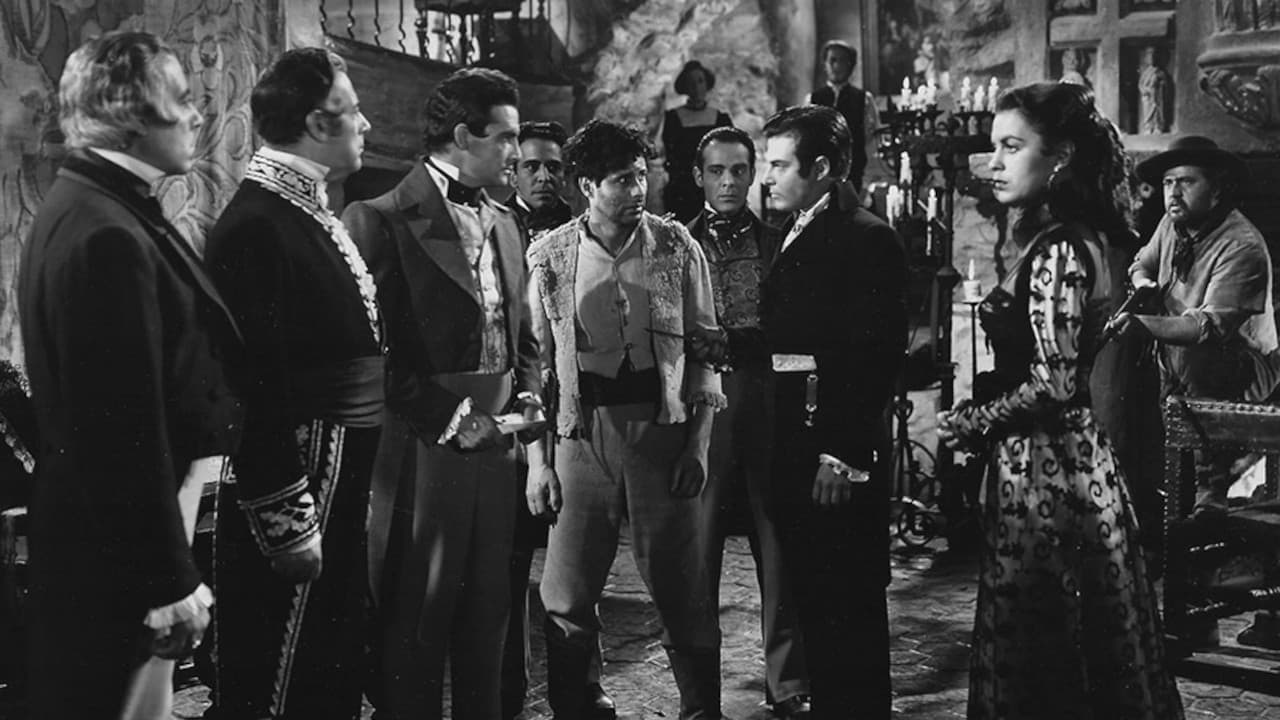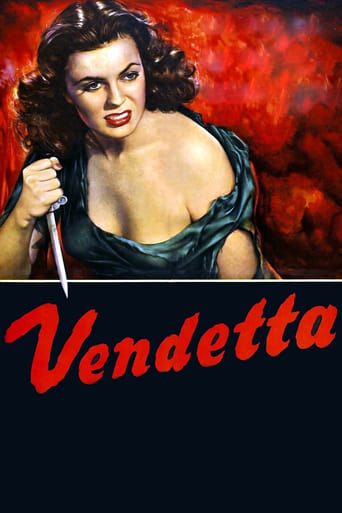MARIO GAUCI
Despite having been dismissed by the late eminent British film critic Leslie Halliwell as an "outmoded ethnic melodrama with nothing to recommend it", I had twice before attempted to acquire this (from a local movie-buff whose chief interest in the film was the presence of beloved Maltese character actor Joseph Calleia, here incarnating the chief villain) – however, both copies froze during the climax and would not proceed further! A costly failure for producer Howard Hughes, this was actually shot in 1946: begun by Ophuls (in what would have been his American debut), with Sturges as writer-producer (he was contemporaneously engaged on THE SIN OF HAROLD DIDDLEBOCK {1947}, another troubled Hughes production); as it happened, the former was fired by Hughes after just one week (claiming his shooting pace was too slow), so Sturges was forced to take over himself. Eventually, he too was replaced – as was, for that matter, original cinematographer Franz Planer (an Ophuls regular) by Al Gilks. Hughes then appointed Heisler and, when he fell ill, editor Weatherwax was put in charge! Still unsatisfied, the producer brought in Ferrer (not yet established as an actor) ostensibly to reshoot the ending – but he was retained for much longer than was anticipated! Ultimately, while Ferrer received sole credit for the film, it is estimated that about two-thirds of the footage is actually Heisler's – whereas precious little survives of either Ophuls' or Sturges' input (even the latter's original script, which he singled out in his memoirs as his best work but also that it was "unproduced"!).Similarly, this was originally to co-star James Mason (who eventually became good friends with Ophuls and made 2 excellent noirs with him) and Madeleine Carroll. Hughes, though, was afraid they would act his current protégée – the inexperienced Faith Domergue – off the screen and had them substituted with George Dolenz (father of Mickey from The Monkees pop group!) and Hillary Brooke (THE WOMAN IN GREEN {1945} being thus re-united with Nigel Bruce's Dr. Watson from that fine "Sherlock Holmes" adventure!). Incidentally, while proudly announcing the introduction of 3 new personalities – Domergue, Dolenz (playing siblings) and Donald Buka (as their servant-turned-bandit, forever accompanied on his exploits by future actor/director Hugo Haas) – the film's resulting lack of success stalled their star careers at the get-go! With respect to the film itself, it comes off as an overpowering, indeed oppressively gloomy, melodrama; that said, the excessively dark and murky print I watched did it no favors at all! To my mind, the thematic intentions here were admirable – yet the background was simply too obscure (exemplified by the hilarious 'V For Vendetta' gesture!) for general audiences to particularly relate to. Still, the plot – of the new head of a Sicilian family being duty-bound to avenge the patriarch's death but, since he had been living abroad, hesitates to stand by such an archaic code – feels at once overly-familiar (interestingly, the film it most reminded me of was Luis Bunuel's underrated THE RIVER AND DEATH {1955}!) and insufficiently compelling. The style, as I said earlier, is heavy-going despite undeniably atmospheric marshland scenes; another asset, then, is the effective use of Italian classical/popular music on the soundtrack.
leew-7
She was a big chest breather, and had a sultry expression.She had her best shot, I thought, in WHERE DANGER LIVES, with Mitchum.George Dolenz had a good part in this; possibly his only. He was a solid character/contract player, and deserved better.The classical musical themes and outsized, over-weighted backgrounds were effective, I thought. Really approaching the cerebral, almost, as far as on a scale of the Howard Hughes things.

